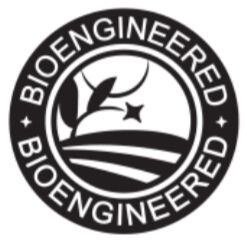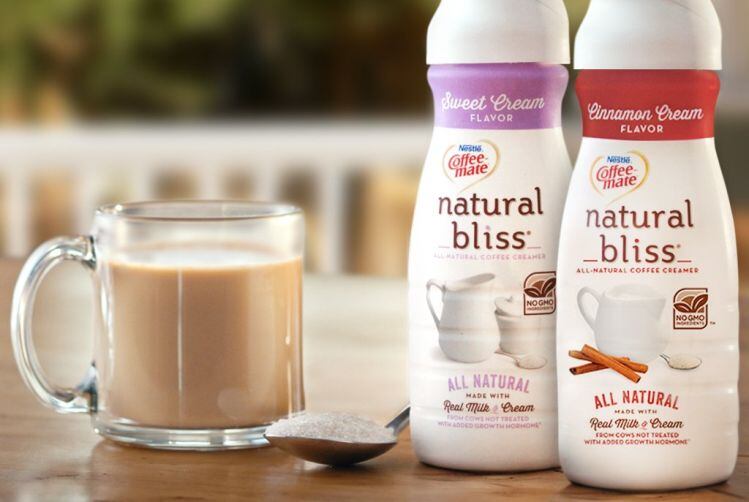Click HERE to read the final rule: The National Bioengineered Food Disclosure Standard (NBFDS).
The Grocery Manufacturers Association (GMA) and some large CPG companies including Hershey and Unilever had argued that excluding refined ingredients made from GM crops (eg. high fructose corn syrup, refined soybean oil, and sugar from sugar beet), from the scope of the mandatory disclosure standard would “confuse consumers, erode trust in brands and the technology and encourage further polarizing activism about what is perceived to be information ‘hidden’ by brands.”
However, the statutory definition of a ‘bioengineered’ food in the 2016 GMO labeling bill stipulates that such a food must contain genetic material that has been modified through in vitro recombinant deoxyribonucleic acid (DNA) techniques, explained the USDA in today’s final rule.
“If the genetic material is not detected, then it is not possible to conclude that the food product or ingredient contains modified genetic material.
"Thus, based on the available scientific evidence, refined beet and cane sugar, high fructose corn syrup, degummed refined vegetable oils and various other refined ingredients are unlikely to require BE food disclosure because the conditions of processing serve effectively to degrade or eliminate the DNA that was initially present in the raw agricultural commodity.”
Voluntary disclosures permitted... but could this cause confusion?
But it added: “AMS [the USDA’s Agricultural Marketing Service] values transparency and consumer interests. AMS recognizes that some regulated entities may wish to disclose that their refined foods (that do not contain modified genetic material and thus are not bioengineered foods) are derived from bioengineering. Accordingly, AMS has provided for voluntary disclosure of such foods.”
In such a scenario, there could be two bottles of soybean oil on the shelf, both from the same GM soybean crop, one of which is (voluntarily) labeled as ‘derived from bioengineering’ and the other which isn’t, and both could comply with the law.
To commentators arguing that excluding refined ingredients from the scope of the mandatory disclosure standard would result in around 78% fewer products being disclosed under the federal law, making a mockery of the exercise, USDA said it understood their concerns, but that it “had to rely on on the statutory language” defining bioengineered enshrined in the bill passed in 2016.
“To the extent that interested persons think that other products should be subject to disclosure, they may submit a petition or request seeking to adopt a factor or condition to potentially modify the definition of ‘bioengineered food’ in a future rulemaking.”
GMA: ‘We are pleased that the USDA has now provided a structure for our companies to share this information voluntarily’
GMA senior vice president and general counsel Karin Moore said the GMA welcomed the opportunity to provide voluntary disclosures as a sensible compromise, adding:
“Disclosure is imperative to increasing transparency, educating consumers and building trust of brands, the food industry and government. We are pleased that the USDA has now provided a structure for our companies to share this information voluntarily.”
CSPI: Final rule does not address Non-GMO claims and definitions
However, the Center for Science in the Public Interest (CSPI) noted that,"By making the disclosure of this information voluntary, consumers will be confused when one product voluntarily discloses that is it “derived from bioengineering” and an identical product has no such disclosure."
Biotechnology director Gregory Jaffe also observed that the final rule also does not define Non-GMO and does not specify when a food can be voluntarily labeled as non-GMO.
"There has been a proliferation of non-GMO claims in the marketplace for foods such as water, salt, and orange juice that don’t have any bioengineered counterpart. Such misleading labeling by food manufacturers takes advantage of consumers’ lack of knowledge to suggest their products are different from similar non-labeled products. USDA or another agency needs to address this issue if consumers are going to have confidence in the many different label claims in the marketplace."
The Sustainable Food Policy Alliance, which includes Danone North America, Mars; Nestlé USA, and Unilever United States, added that "the standards fall short of consumer expectations, and the practices of leading food companies, particularly when it comes to how we are already disclosing highly refined ingredients and the threshold for disclosure.
"Our member companies will continue to take strong, proactive steps to meet consumer expectations for transparency – and we encourage others in the industry to do the same."
The highlights:
We will cover stakeholders’ reactions to the final rule in detail in the New Year, but for now have listed some key points:
Implementation Date: January 1, 2020. Extended implementation date for small food manufacturers: January 1, 2021. Mandatory compliance date: January 1, 2022.
Definition of bioengineered: “Referring to a food (A) that contains genetic material that has been modified through in vitro recombinant deoxyribonucleic acid (DNA) techniques; and (B) for which the modification could not otherwise be obtained through conventional breeding or found in nature.”
Thresholds: The rule "establishes a threshold for the inadvertent or technically unavoidable presence of bioengineered substances of up to 5% for each ingredient."
Highly refined ingredients where GMOs not detectable are not subject to the law: “For refined foods that are derived from bioengineered crops, no disclosure is required if the food does not contain detectable modified genetic material.”
What testing methods should firms use? “AMS will provide instructions to the industry to explain how they can ensure acceptable validation of refining processes in accordance with AMS standards. AMS will also provide instructions regarding acceptable testing methodology used to satisfy that a food does not contain detectable modified genetic material.”
What if testing methodologies change?
As for testing methodologies, should they evolve, some products that do not require labeling under the rule now, may require labeling in future, added the USDA.
“We recognize that testing methodology may evolve so that a future test may detect modified genetic material in a food ingredient that current tests do not. The definition of “bioengineered food” accounts for this possible evolution. If the modified genetic material in that food ingredient becomes detectable in the future, the food ingredient would be subject to BE disclosure.”
Voluntary disclosures are allowed: “AMS has attempted to provide as much flexibility to the food and grocery industry as possible, along with the transparency to consumers that they expect and deserve. As such, the final rule provides for voluntary labeling (1) by entities that are otherwise exempt from the requirements of the NBFDS or (2) for certain foods that do not meet the definition of ‘bioengineered food’ but are derived from bioengineered crops or food.
“The final voluntary disclosure provisions allow for a food manufacturer, retailer, importer, or other entity to voluntarily disclose a food that originates from a bioengineered crop that they would otherwise not be required to disclose, using the distinct terminology ‘derived from bioengineering.’ AMS recognizes that many entities have invested resources into alternative voluntary disclosure methods or labels, but AMS believes that voluntary disclosure should be consistent to avoid consumer confusion.”
“Voluntary bioengineered disclosure is not permitted for foods derived from animals fed bioengineered feed.”
Incidental additives don’t require labeling: “Such an item will only trigger disclosure when it is used as an ingredient that is included on the ingredient list, not when used as an incidental additive.”
Food-to-go sold in supermarkets exempted: “Salads, soups, and other ready-to-eat items prepared by grocery stores are exempt from the disclosure requirements.”
Very small businesses are exempt: If annual sales are below $2.5m.
Meat and milk from animals fed GM feed is exempt: “The amended Act prohibits a food derived from an animal from being considered a bioengineered food solely because the animal consumed feed produced from, containing, or consisting of a bioengineered substance.”

Certified organics exempt: “This exemption is intended to cover all NOP certified label categories (‘100% Organic,’ ‘Organic,’ and ‘Made with Organic’) because NOP regulations clearly require that no ingredient may be bioengineered. This exemption, however, does not apply to “products with less than 70% organically produced ingredients” because those products may include bioengineered ingredients along with organic ingredients.”
‘May be bioengineered?’ “The ‘may be bioengineered’ disclosure cannot be used.”
GMO or bioengineered? “AMS considered similar terms to ‘bioengineering’ … but ultimately determined that ‘bioengineering’ and ‘bioengineered food’ accurately reflected the scope of disclosure and the products and potential technology at issue. AMS believes that using other terms such as ‘genetic engineering’ or ‘genetically modified organisms’ (GMOs) may create inconsistencies with the preemption provisions or muddy the scope of disclosure.”
Bioengineered symbol: “AMS will allow regulated entities to use a black and white version of the symbol.”
Electronic disclosure: “The amended Act requires that the use of an electronic or digital link to disclose BE food must be accompanied by the statement “Scan here for more food information” or equivalent language – deemed too hard for shoppers Regulated entities that choose this option are required to include a statement on the package that instructs consumers on how to receive a text message.’”
Read a selection of initial stakeholder reactions here:
"Some aspects of the mandatory disclosures rule finalized by USDA are not in the best interest of consumers. First, the term 'bioengineered' is unfamiliar to most consumers. CSPI advocated for the more familiar and scientifically accurate term 'genetically engineered.'
"Second, highly processed ingredients which are derived from genetically engineered crops, such as sugar and corn oil, will not be disclosed on a mandatory basis, but could be disclosed on a voluntary basis... CSPI agrees with the decision to disclose highly processed ingredients as “derived from bioengineering” but disagrees with USDA’s decision to not mandate that disclosure. By making the disclosure of this information voluntary, consumers will be confused when one product voluntarily discloses that is it “derived from bioengineering” and an identical product has no such disclosure." Gregory Jaffe, biotechnology director, CSPI
“This allows transparency for consumers while following the intent of Congress that only food that contains modified genetic material be required to be labeled bioengineered under the law, with food companies having the option of providing additional information if they choose." Davie Stephens, president, the American Soybean Association
"Misleading absence claims may persist even under this rule, and we urge USDA and the FDA to focus their energy on examining voluntary disclosures and their potential to be false and misleading.” National Milk Producers Federation
“This rule does not impose misleading labeling requirements and recognizes that there are no differences between oils, starches, and sugars made from bioengineered or conventional crops." Richard Gerstenberger, president, the American Sugarbeet Growers Association
“We support the USDA in following the plain language of the law by requiring disclosure when foods contain genetic material modified via bioengineering, but not when bioengineered genetic material is absent. Appropriately, the regulation does not impose labeling requirements that would mislead consumers.” John Bode, president and CEO, the Corn Refiners Association
"No one should be surprised that the most anti-consumer, anti-transparency administration in modern times is denying Americans basic information about what’s in their food and how it’s grown." Scott Faber, SVP government affairs, the Environmental Working Group
"The final rule fails to fix the most egregious provisions of the draft rule and is practically useless in conveying accurate information about food ingredients to consumers while they are shopping. The rule has such a narrow definition of bioengineered... that many foods (including packaged foods) will be excluded from its purview. In addition, newer techniques such as gene editing, synthetic biology and RNAi are not subject to labeling. Institute for Agriculture and Trade Policy
“This rule fails to give consumers the information they deserve. Consumers can, however, rely on labels such as “Non-GMO Process Verified” which will tell them if a food does not contain GMO ingredients.” Michael Hansen, senior staff scientist, Consumer Reports



